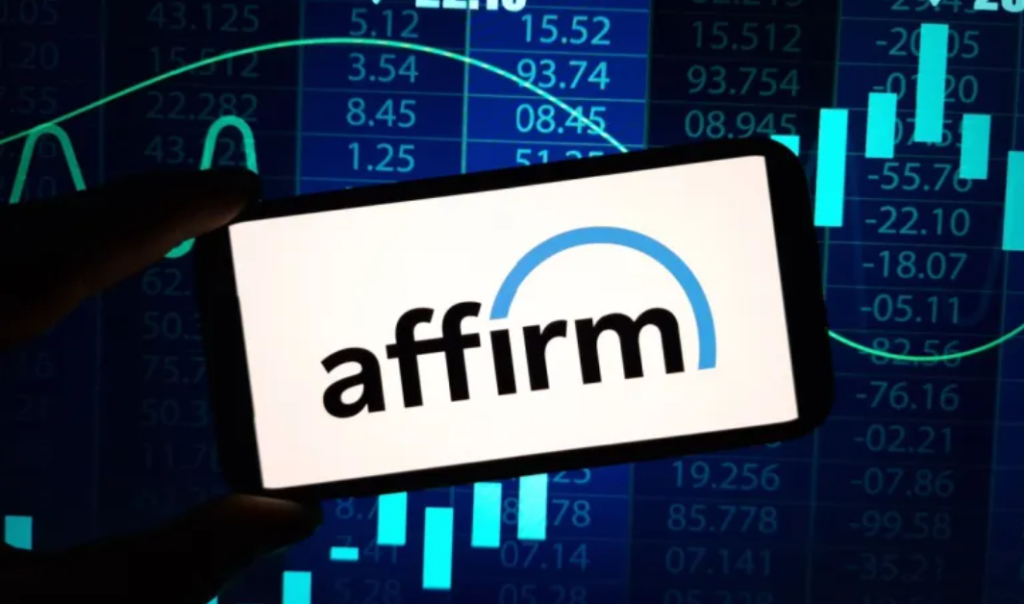
Affirm
Affirm’s UK Launch
Affirm, a major player in the “buy now, pay later” (BNPL) sector, has launched its services in the United Kingdom, marking its first foray outside North America. This expansion into the U.K. comes at a critical time as British lawmakers consider regulations that aim to align BNPL companies with traditional consumer credit services. Affirm’s entry has the potential to reshape the U.K. market, especially with unique offerings like no hidden fees and a simplified interest structure, aligning well with consumer and regulatory expectations. But this shift also raises important questions about BNPL’s future in consumer finance.
The Origins of BNPL: From Convenience to Controversy
The BNPL industry, including players like Klarna, Afterpay, and Affirm, rose to prominence over the past decade, offering shoppers an appealing alternative to credit cards. By allowing consumers to split purchases into smaller, often interest-free payments, BNPL has empowered millions, particularly young and budget-conscious shoppers, to make purchases without traditional credit checks.
Affirm was founded in 2012 by Max Levchin, one of PayPal’s co-founders. Originally a startup from HVF (Hard Valuable Fun), Affirm has positioned itself as a consumer-friendly alternative to credit cards. In its U.S. base, Affirm has established key partnerships with major brands such as Shopify, Walmart, and Amazon, a testament to its credibility and market demand. While critics argue that BNPL services “normalize debt” and encourage impulse buying, providers counter that they empower responsible spending by offering transparency and predictable payment terms.
Regulatory Challenges in the U.K. BNPL Market
With BNPL services becoming increasingly popular, regulators worldwide have raised concerns. In the U.K., the Financial Conduct Authority (FCA) has long kept an eye on BNPL companies, scrutinizing their role in encouraging debt. While some regulatory frameworks already apply, exemptions currently exist for interest-free credit services with fixed repayment terms under one year. However, upcoming rules could further tighten control, requiring BNPL firms to offer clear terms, prevent unaffordable borrowing, and grant robust consumer rights.
As part of its U.K. launch, Affirm has strategically tailored its model to meet these expectations, distinguishing itself with policies like no late fees and a transparent fixed-interest structure. Klarna, for instance, introduced late fees in the U.K. last year, while Affirm continues to avoid such charges, an approach it hopes will help build trust with British consumers.
Current Advancements: The Battle for BNPL Dominance
The BNPL industry has experienced ups and downs. Klarna, Affirm’s key rival, saw its valuation soar to $45 billion in 2021, only to later plunge by 85% before partially recovering. Affirm itself had a similar trajectory; after a successful IPO in 2021 that valued the company at $47 billion, its market cap fell significantly, though it has since rebounded to over $13 billion.
Despite these challenges, Affirm has shown remarkable resilience, recently reporting a 48% year-on-year revenue increase and a significant drop in losses. With predictions of profitability by 2025, Affirm’s entry into the U.K. could be well-timed, allowing it to gain traction ahead of stricter regulations expected by 2026.
Real-World Applications: A Comparative Analysis
In the real world, BNPL services are used across various sectors, from fashion to travel. In the U.S., Affirm has partnered with Amazon and Apple, making BNPL available for large-ticket items such as electronics and travel packages. This flexibility is advantageous for consumers seeking to manage large expenses without incurring significant interest costs. However, the challenge lies in helping users avoid overspending and managing payments responsibly.
Affirm’s U.K. launch involves partnerships with companies like Alternative Airlines and Fexco, suggesting a focus on sectors where BNPL can provide immediate benefits. BNPL can enable consumers to spread out expenses for travel bookings, making it an attractive option, especially as travel resumes post-pandemic. The question is whether this expansion will increase consumer accessibility or drive impulse spending, a criticism the industry continues to face.
Perspectives on BNPL’s Role in Financial Inclusion
Financial experts have mixed views on BNPL’s role. Some argue that BNPL offers a viable alternative for those who may not qualify for traditional credit. Others caution that BNPL could lead to increased debt accumulation, particularly among younger users. According to financial advisor Sarah Williams, “BNPL services can be beneficial if used responsibly, but the lack of credit checks and ease of access may encourage some to accumulate unmanageable debts.”
In contrast, Affirm’s Max Levchin defends the model as an “empowering tool” for consumers. By offering transparency and predictable payments, Levchin believes Affirm meets a need left unaddressed by conventional credit products.
Tips for Consumers Using BNPL
- Set a Spending Limit: Only use BNPL for purchases you can realistically pay off within the set repayment period.
- Read the Fine Print: Understand the terms, fees, and interest rates to avoid unexpected costs.
- Track Payments: Many consumers miss payments unintentionally; setting reminders can help maintain a good credit score and avoid additional charges.
The Challenges of BNPL: Real-Life Stories
Consider Alex, a university student who frequently used BNPL for clothing purchases. While manageable initially, her spending soon spiraled, leading to overdue payments and a negative credit score. Alex’s story serves as a cautionary example, illustrating the ease with which consumers can accumulate debt through BNPL. Alternatively, Sarah, a small business owner, used BNPL to invest in essential equipment, allowing her to expand her business without a hefty upfront investment.
These anecdotes highlight both the potential benefits and pitfalls of BNPL, emphasizing the importance of responsible usage.
Is BNPL Sustainable?
As Affirm enters the U.K. market, it brings a fresh wave of competition and consumer choice to an industry already under scrutiny. However, as BNPL continues to evolve, important questions remain:
- Will BNPL companies be able to adapt to stricter regulations without losing their unique consumer appeal?
- How can users balance the convenience of BNPL with the risk of overspending?
- As more companies adopt BNPL, will consumers increasingly rely on it, or will they revert to traditional credit options?
Affirm’s U.K. expansion underscores the dynamic nature of the BNPL market, raising questions about consumer debt, financial responsibility, and the future of credit. For consumers, the challenge will be to weigh the benefits of BNPL’s flexibility against the risks of financial overextension. For Affirm and its rivals, the future depends on meeting consumer needs while satisfying regulatory demands — a balancing act that could define the next chapter in consumer finance.




